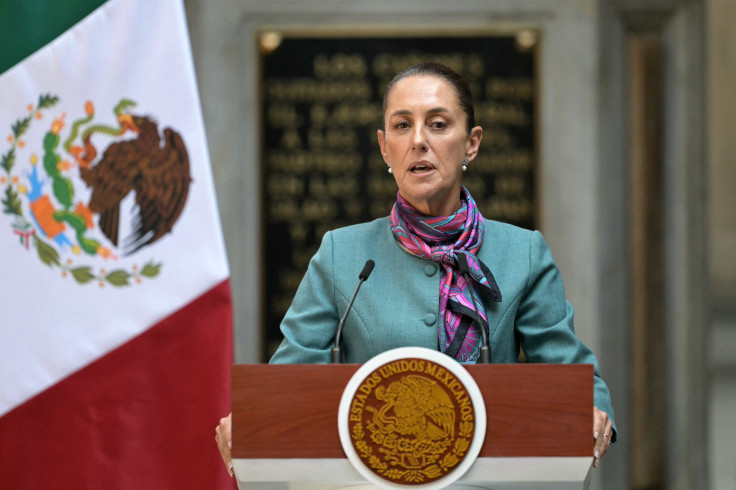
Mexican President Claudia Sheinbaum rejected a report detailing how the Sinaloa Cartel is seeking to recruit college chemistry students and get them to become involved in the process of producing fentanyl.
Speaking at her daily press conference, Sheinbaum said the New York Times report has no basis in reality. She then suggested that the only similar scenario she has seen takes place in the American TV series "Breaking Bad," where a high school teacher with terminal cancer begins to produce methamphetamine to ensure his family's financial wellbeing after his passing.
"This on The New York Times about young Mexicans, chemistry students, developing drugs, doesn't necessarily happen. It started elsewhere and the only thing I've seen is an American TV show," Sheinbaum said.
"I asked in the cabinet and there is no information about this. I asked Paulina (Social Communication coordinator) about this because there is a TV series, but it takes place in New Mexico. There is a well-known TV series that received many awards, about a chemistry teacher in the U.S. that makes an apology of this," she added.
The NYT report, which includes several interviews with students and recruiters, details the covert methods used to begin the relationships. Recruiters offer amounts higher than the market average for chemistry jobs.
A sophomore chemistry student described to the outlet how he was approached on campus. and offered $800 upfront and a monthly salary of the same amount, twice the average pay for chemists in the country. Many students are lured into the trade by dire economic circumstances or family obligations, which end up trumping dangers and ethical concerns.
Asides from the salary, some recruits have received assistance with their tuition in exchange for their commitment. A cartel recruiter described the model as similar to corporate investments, looking to attract the most capable individuals.
Some recruits are tasked with conducting experiments to enhance the drug's power or to synthesize precursors to reduce their reliance on such imports from China. To do so, they often end up working under dangerous conditions in clandestine labs. Despite protective measures like hazmat suits, they face risks from toxic exposure, explosions, and violence if they fail to deliver what is expected of them.
Despite the fact that manufacturing fentanyl when precursors are available is relatively easy, synthesizing these chemicals from scratch requires advanced techniques. Students are placed in research roles where trial and error dominate their work. One student described being blindfolded and driven to a remote lab where he joined a team attempting to create precursors.
The Sinaloa Cartel is not only seeking to increase production and the potency of the synthetic opioid but also to synthesize precursor chemicals domestically to reduce their reliance on such imports from China. American officials warn that if cartels successfully develop precursor chemicals in-house, it could mark a new phase in the epidemic, giving cartels unprecedented control over the drug's supply chain.
Sheinbaum emphasized in her press conference that the opioid crisis in the U.S. has been "fueled by pharmaceutical companies" and that "there are documents" about it. "We'll boost the campaign against drug addiction, particularly fentanyl, because, fortunately, we don't have an opioid addiction problem in Mexico leading to overdose deaths. It is a problem Mexico and Canada have," the president concluded.
© 2025 Latin Times. All rights reserved. Do not reproduce without permission.





